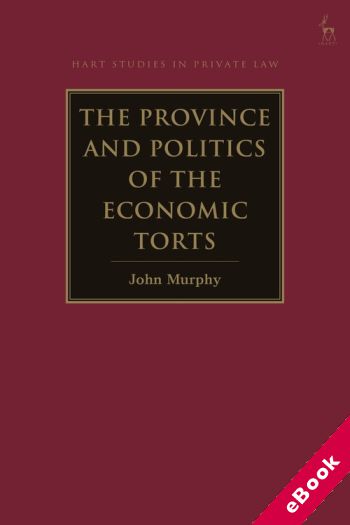
The device(s) you use to access the eBook content must be authorized with an Adobe ID before you download the product otherwise it will fail to register correctly.
For further information see https://www.wildy.com/ebook-formats
Once the order is confirmed an automated e-mail will be sent to you to allow you to download the eBook.
All eBooks are supplied firm sale and cannot be returned. If you believe there is a fault with your eBook then contact us on ebooks@wildy.com and we will help in resolving the issue. This does not affect your statutory rights.
Economic torts play a key role in the development of private law more generally. Indeed, the landmark case of OBG v Allan (2008) provided one of the most important decisions in the whole of the law of torts in the last generation, as the House of Lords sought to bring order to an area of the law that has long been beset by doctrinal and theoretical puzzles. Probably the most enduring question of all in this area is whether the economic torts can be unified. This book argues that the search for unity is a will o' the wisp. More particularly, it shows that although some juridical connections exist between some of these torts, there is far more that separates them than unites them. Offering a unique perspective, this is a landmark publication on the law of economic torts.